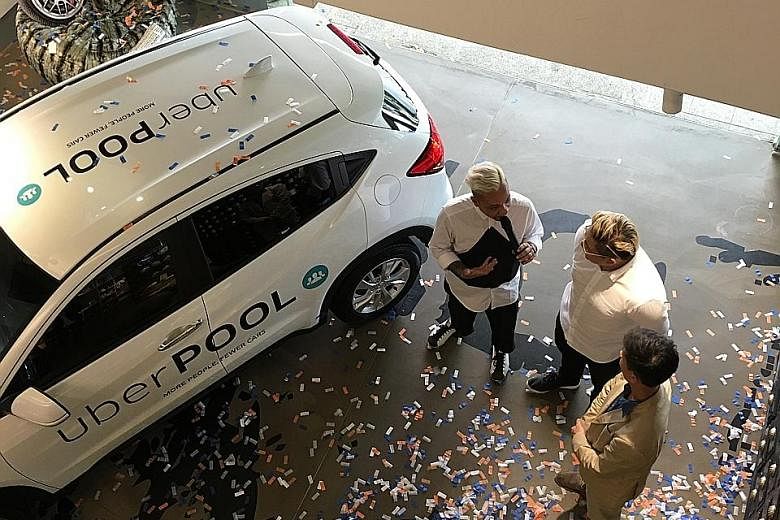Only 9 per cent of Uber's fleet of defective Honda Vezel cars have been fixed, according to the Land Transport Authority's (LTA) records.
This contradicts Uber's claim that all its affected Vezels - which could catch fire - had been repaired. LTA added that Uber had 1,200 of the affected cars, which were among some 11,000 Vezels imported here.
An LTA spokesman said yesterday that 25 per cent of all Vezels imported here have been rectified. She said the figures were "based on last available information provided by importers and dealers".
And while it is not illegal for dealers to sell cars which are affected by a recall, the law requires them to inform potential buyers of any relevant recall. "The buyers of such vehicles are also required to acknowledge that they have been informed of the defect and to undertake to send in their vehicle for rectification," the LTA spokesman added.
Asked repeatedly if it has replaced the defective parts in all 1,200 cars, Uber would only say it is "working closely with LTA and importers to ensure that LTA's records are up to date".
The authority was responding to queries arising from a Wall Street Journal (WSJ) report that Uber had knowingly bought and rented out Vezels that were defective - a point that the American ride-hailing firm has not denied.
A recall for the faulty cars was initiated in April 2016, to fix an inadequate electrical capacitor in the car's stop-start mechanism. This mechanism switches off the engine when the car is stationary - to save fuel - and restarts it when the driver steps on the accelerator.
The Straits Times understands a large proportion of Uber's Honda Vezel fleet came from Singapore-based Sunrita, a parallel importer the ride-hailing firm is embroiled in a legal tussle with over late delivery of cars.
According to the WSJ report, Uber's senior management came to know of the flaw and recommended that the vehicles be taken back from drivers to avoid "unnecessary risk". But its Singapore general manager Warren Tseng said in an e-mail that the plan would cost the company about S$1.4 million in driver wages, rental fees and parking costs.
One affected car caught fire in January this year. No one was hurt.
When asked to comment, Uber spokesman Leigh Wong said: "As soon as we learned of a Honda Vezel... catching fire, we took swift action to fix the problem, in close coordination with Singapore's Land Transport Authority as well as technical experts.
"But we acknowledge we could have done more - and we have done so. We've introduced robust protocols and hired three dedicated experts... to ensure we are fully responsive to safety recalls.
"Since the beginning of the year, we've proactively responded to six vehicle recalls and will continue to do so to protect the safety of everyone who uses Uber."
He would not say what the six other recalls were, but directed ST to an LTA web page, which listed 27 recalls in the past six months.
Honda's authorised agent Kah Motor said this is one reason why it imports only models that are deemed export-ready by Honda.
The stop-start feature's flaw had been fixed in its vehicles before they left for Singapore.
The Vezel was Singapore's top selling car for 2015 and 2016. Last year, one out of every two cars parallel importers sold was a Vezel.
Some parallel importers have advised owners to deactivate the stop-start function while waiting for replacement for the defective part. That was what Uber recommended its drivers do.
An Uber driver who drove a Vezel until recently said the firm was quick to take the car back to remove instead of replacing the part "because there were insufficient parts".


